23 Nov Solar-powered or Battery-powered?
Let me start by making it clear that this series of articles on Myers Briggs Type Indicator (MBTI) does not in anyway replace the need (and indeed the fun) of completing the indicator and working with a certified professional to work through your results with you. These articles are meant to be a general overview of the process and are designed to whet your appetite to find out more.
In the first article (Who do you think you are?) we looked at the differences in people. In this month’s article we are going to take a look at one of the four dichotomies Myers and Briggs use to help us to understand and therefore enjoy those differences. The words Myers and Briggs use are slightly obscure and can be confusing, so I ask you to concentrate instead on the words we use to describe the dichotomies.
Extraversion and Introversion are the topics for this month’s article. Are you energized by things and people (Extroversion – solar powered) or by internal conversations and thoughts (Introversion – battery powered)
Which is your most natural energy orientation?
Every one of us has two faces. One is directed towards the outer world of activities, excitement, people, and things. I call the people who prefer this way of gaining energy “solar powered” as they are grabbing their energy from people and things around them. These people have a preference on the Extraverted (E) side of the dichotomy. The other is directed inwardly to the inner world of thoughts, interests, ideas, and imagination. I call these people “battery powered” as they get their energy from inside, just as we get power from the workings inside a battery. These people have a preference on the Introverted (I) side of the dichotomy.
While these are two different but complementary sides of our nature, most people have an innate preference towards energy from either the outer or inner world. Therefore one of their faces or preferences, either the Extraverted (E) or Introverted (I), takes the lead in their personality development and plays a more dominant role in their behavior.
Let me give you an example. Two people–let’s call them Elspeth and Ingrid–are working in the same busy office.
Elspeth spends her day concentrating in short sharp bursts; she finds it difficult to concentrate for long periods of time, as she prefers to talk her thoughts through, so she is often found talking with her colleagues and discussing what’s on her mind. When in a meeting she is always happy to speak up and discuss her preoccupations. She doesn’t mind being put on the spot and she often talks first and thinks later. Whilst working away she never minds an interruption, be it a phone ringing or a colleague asking for some of her time. She enjoys, even welcomes the interruption. Clearly she is gets her energy externally.
On the other hand…
Ingrid spends her day at work thinking about her priorities. She works through any conversations she might need to have in her head first, getting all her ducks in a row before she goes off to externalise them to anyone. When she knows there is a meeting she has to attend, she likes to make sure that she knows what will be expected of her so she has time to prepare her thoughts and ideas. She sometimes feels anxious in a meeting if she is suddenly put on the spot as she really prefers to have time to reflect first and then respond. She would much prefer if all these team meetings were done away with and she was able to communicate on a one-on-one basis rather than in these big unwieldy meetings. During her working day, she has such clear inner dialogues that she often does not hear the phone ring, or doesn’t notice if a colleague comes up to speak to her. Clearly she gets her energy internally
Elspeth sometimes aggravates Ingrid as she always wants to talk things through because she thinks Elspeth is just too “chatty”. However, she is always happy when Jane is in a meeting as she always has something to say, and it takes the pressure off her.
Ingrid sometimes aggravates Elspeth, as she never seems to share her thoughts and ideas in meetings. Ingrid often seems to be in another world. And why does she so seldom answer the phone when it rings? However, Ingrid always enjoys a one to one conversation with Elspeth as she seems to be happier to talk at these times and share her well-thought out ideas.
The differences are clear. Yet we often cannot accept that people react and work in different ways and neglect to use those differences to everyone’s benefit.
Remember that there is no right or wrong, good or bad type. All types are valuable and all have their pitfalls.
What’s your preference? Solar-powered or Battery-powered?
Next month we will look at the next of the four dichotomies – Sensing and Intuition (don’t get hung up on the words I beg you).

